news
‘Obasanjo Should be Blamed on Rethinking Western Liberal Democracy in Nigeria. From 1999 to 2007, he even made attempts to modify the constitution’ Onanuga fumes
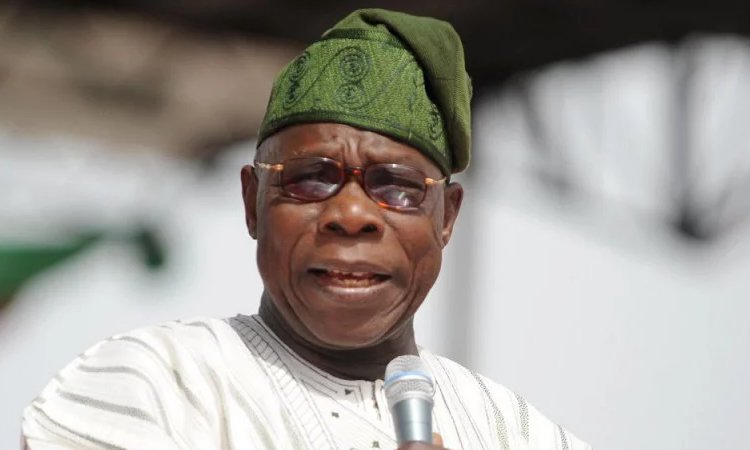
 The Presidency, on Monday, blamed former President Olusegun Obasanjo for the current state of Nigeria’s democracy.
The Presidency, on Monday, blamed former President Olusegun Obasanjo for the current state of Nigeria’s democracy.
The Special Adviser to the President on Information and Strategy, Bayo Onanuga, who spoke to the Newsthumb noted that the democracy the country currently practises dates back to direct inputs by Obasanjo when he led the country’s first as military Head of State from 1976 – 1979 and as civilian President from 1999 – 2007.
“Obasanjo ought to know that he brought this thing into Nigeria. He was the one who made us adopt it in 1979. He must have seen it as expensive and unsuitable when he governed us for eight years and even wanted an extension for another four years.
“So, the way he is sounding, it is like the man is getting wiser after leaving office,” Onanuga said, reacting to Obasanjo’s post-presidential stance.
The Presidency’s response followed comments made by Obasanjo at the high-level consultation on Rethinking Western Liberal Democracy in Africa held at Green Resort Legacy, Olusegun Obasanjo Presidential Library, Abeokuta.
Obasanjo had criticised Western democracy, suggesting it had not delivered good governance and development in Africa.
He called for a reexamination and moderation of democracy to better suit African nations, citing the Western model’s disregard for African history and complexities.
Obasanjo proposed an “Afro democracy” tailored to the continent’s unique needs.
The ex-president said the snag with the liberal democracy was that it was not home-grown and did not take into account African history and multicultural complexities, among other peculiarities.
Picking holes in the Western liberal democracy, Obasanjo described it as a “government of a few people over all the people or population and these few people are representatives of only some of the people and not fully representatives of all the people. Invariably, the majority of the people are wittingly or unwittingly kept out.”
According to him, African countries have no business operating a system of government in which they have no hands in its “definition and design.”
Obasanjo said, “The weakness and failure of liberal democracy as it is practised stem from its history, content and context and practice. Once you move from all the people to a representative of the people, you start to encounter troubles and problems.
“For those who define it as the rule of the majority, should the minority be ignored, neglected and excluded? In short, we have a system of government in which we have no hands to define and design and we continue with it even when we know that it is not working for us.
“Those who brought it to us are now questioning the rightness of their invention, its deliverability and its relevance today without reform. The essence of any system of government is the welfare and well-being of the people, all the people.”
He argued that Nigerians must “interrogate the performance of democracy in the West where it originated from and with us the inheritors of what we are left with by our colonial powers.”
But the Presidency blamed the former leader for a poorly copied model during his tenure as Head of State and, later, President.
It criticised Obasanjo for not advocating a better system despite his current views saying, “If he believes in what he is saying now, he ought to be an advocate of the need to go back to the parliamentary system.”
Onanuga added, “We were practicing the parliamentary democracy the British left for us. Then, the military struck in 1966. And when we were going to return to democracy, instead of going back to what we were practicing before, parliamentary democracy, which was not expensive, it was this same Obasanjo who accepted the recommendation of the constitutional assembly at that time that recommended this American-style democracy.”
The Presidency criticised Obasanjo’s implementation of the presidential system, saying, “Obasanjo also knew that he copied this presidential system very wrongly. He copied the form and structure. But he didn’t copy the spirit of it.”
“Something that should have been under him in 1999 to 2007, he even made attempts to modify the constitution,” Onanuga remarked.
news
Update : TINUBU DEPARTS ABUJA FOR AQABA PROCESS MEETING IN ROME, SAYS ONANUGA
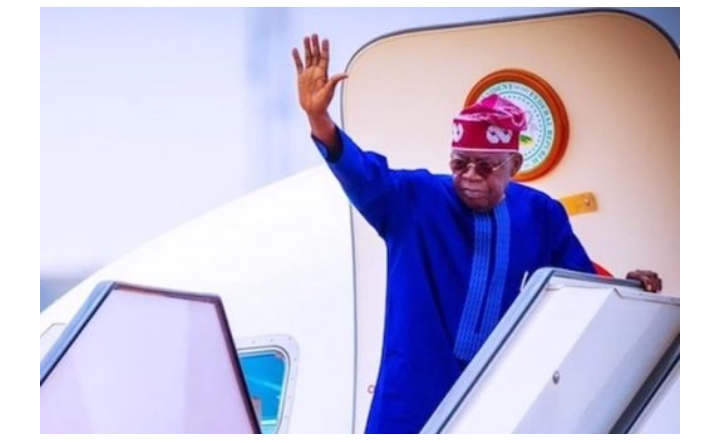
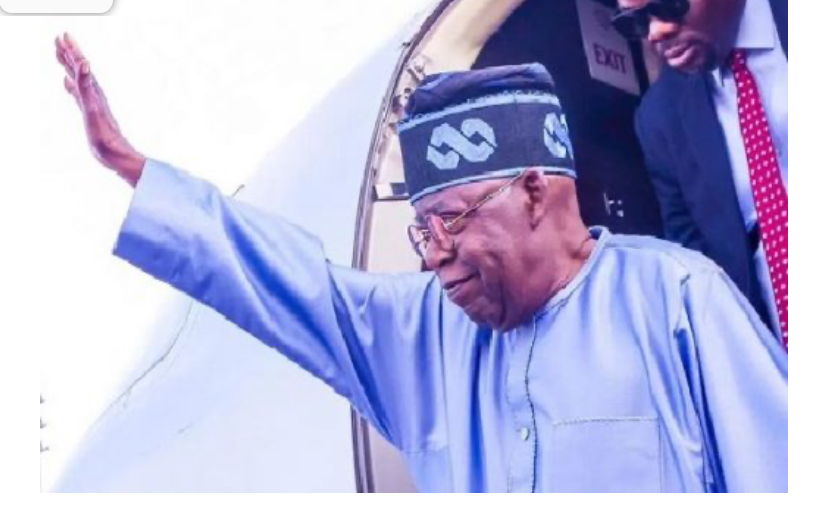
President Bola Tinubu will depart Abuja on Sunday, October 12, for Rome, the capital of Italy, to participate in the Aqaba Process Heads of State and Government Level Meeting, with special focus on the security crisis in West Africa.
The meeting, which will begin on October 14, will bring together Heads of State and Government, senior intelligence and military officials from African countries, and representatives of intergovernmental and non-governmental organisations to discuss the evolving security challenges in West Africa.
The Aqaba Process Meeting is a counter-terrorism initiative launched by King Abdullah II of Jordan in 2015. It is co–chaired by the Hashemite Kingdom of Jordan and the Italian Government.
It recognises the complex security challenges confronting West Africa, including the expansion of terrorist networks, the growing crime-terror nexus and the increasing overlap between land-based terrorism in the Sahel and the maritime piracy in the Gulf of Guinea.
At the meeting, participants will exchange assessments of the current security landscape in West Africa and foster collaboration between regional and international partners to address cross-border security challenges. Participants will also develop strategies to counter the terror threat on land and the sea.
The meeting will discuss ideas on how to coordinate efforts to combat online radicalisation and disrupt digital networks that facilitate terrorist propaganda and recruitment.
In addition to attending the plenary sessions of the Aqaba meeting, President Tinubu will hold bilateral talks with other leaders to explore ways of addressing the rising security challenges across the subregion.
The President will be accompanied by the Minister of State for Foreign Affairs, Ambassador Bianca Odumegwu–Ojukwu, the Minister of Defence, Mohammed Badaru Abubakar, the National Security Adviser, Nuhu Ribadu, the Director-General of the National Intelligence Agency (NIA), Ambassador Mohammed Mohammed, and other senior government officials.
news
2027 Election : All is set for the collapse of the PDP in Enugu As Mbah, Others Join APC
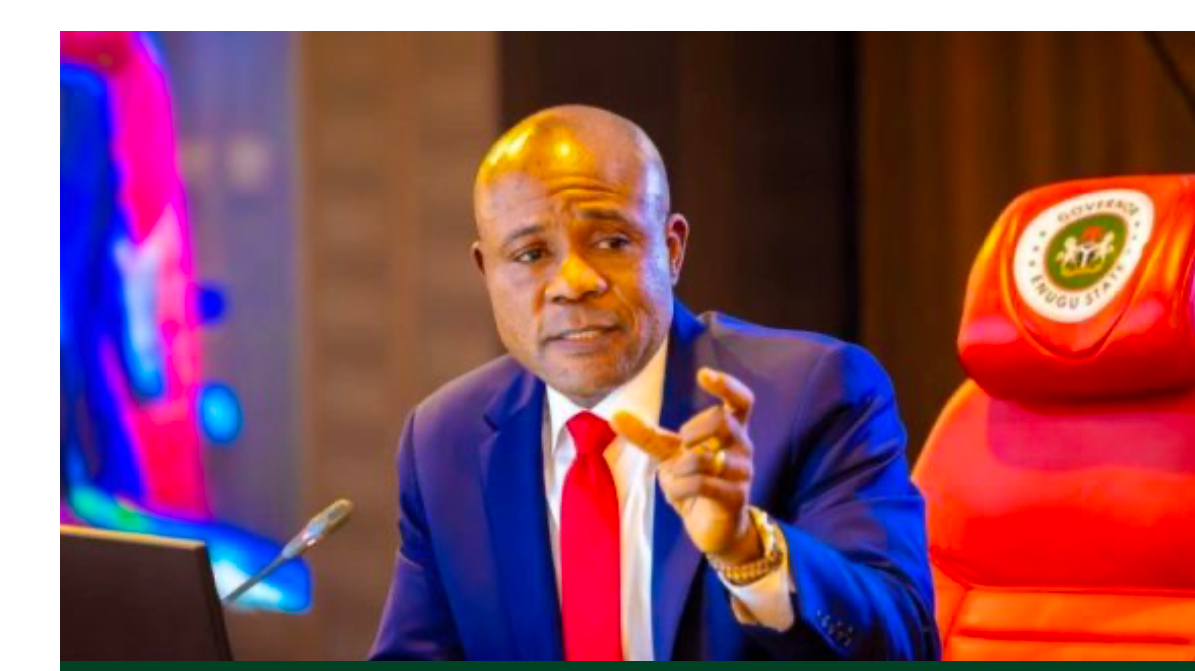
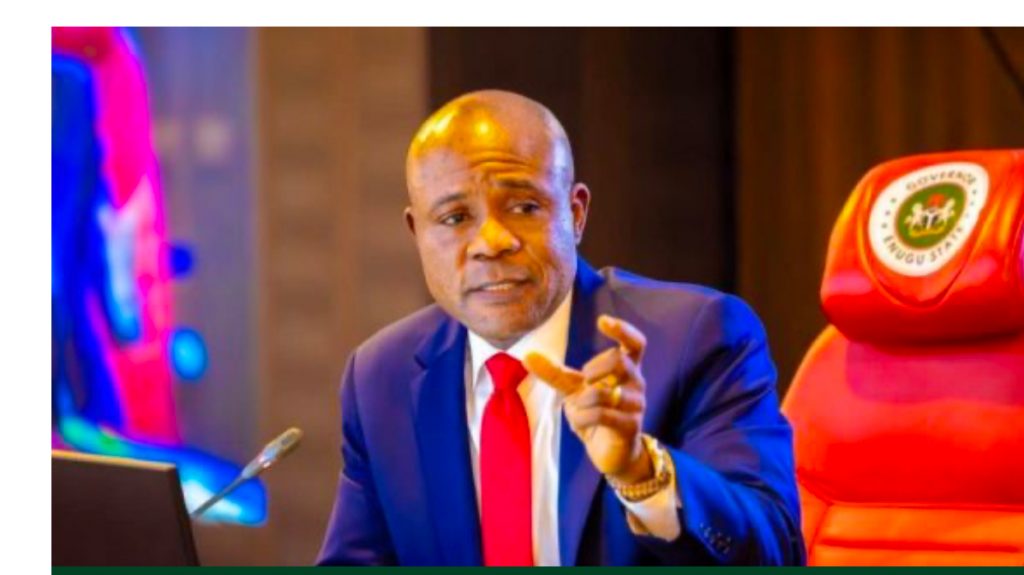 …..Gov, lawmakers, party executives exit party enmasse
…..Gov, lawmakers, party executives exit party enmasse
……Uncertainty over Suswam’s, ex-NAFDAC boss’ defection in Benue
…….PDP kicks, says govs being intimidated, coerced to defect
……Put your house in order, we’re not architect of your woes – APC
In a manner reminiscent of the defections that occurred in Delta and Cross River states earlier in the year, Governor Peter Mbah and all elected and appointive officers of the state are set to formally defect from the PDP to the All Progressives Congress (APC) on Tuesday next week.
The newly inaugurated Enugu State APC Caretaker Committee Chairman, Dr. Ben Nwoye, confirmed the development to newsmen at the APC National Secretariat in Abuja after taking the oath of office yesterday.
He made the disclosure during a press briefing by the newly inaugurated Enugu State Caretaker Committee.
Describing Mbah’s defection as the dawn of a new political era for Enugu and the Southeast region, Nwoye said the governor’s coming into APC would be “a merger between transformation and renewed hope.”
“For the past 10 years, Enugu State has remained in opposition. But all that ends on Tuesday when Governor Peter Mbah declares for the APC. And he is not coming alone,” Nwoye said.
According to him, the defection will signal a “historic alignment” as Mbah will be joined by 260 councillors, 24 state lawmakers, National Assembly members, and the entire state executive council—an unprecedented political realignment with President Bola Ahmed Tinubu’s Renewed Hope Agenda.
“Where Enugu goes, the Southeast goes. This marks the beginning of the Southeast’s political reawakening and full integration into national politics,” Nwoye said with a tone of confidence.
Commending the Governor Mbah’s performance in his last two years in office, Nwoye, who was the founding state chairman of the party, noted that his economic and infrastructural reforms had elevated the state to one of Nigeria’s top-performing states in internally generated revenue.
He added that the synergy between Mbah’s Transformation Agenda and President Tinubu’s Renewed Hope Vision would accelerate development and economic growth across the Southeast.
APC National Chairman, Prof. Nentawe Yilwatda, who inaugurated the seven-man caretaker committee for the party in the state, had earlier hinted of moves by the APC to strengthen its foothold in the Southeast.
The APC chairman charged the new Enugu leadership to consolidate the shock defection into a “lasting political conquest”
“APC is home for all. The person who came yesterday, today or tomorrow has equal rights.
Nigerian government services
Private refinery investment Nigeria
Digital trade agenda investment
“Our goal is simple: to expand, to win, and to deliver overwhelming victory in 2027,” Yilwatda said.
APC’s Deputy National Chairman (South), Emma Eneukwu, who is from the state, said the political development in the state marked the return of the Southeast region to national relevance.
“We will no longer play second fiddle. With Enugu in APC, the Southeast has found its voice again,” he declared.
Uncertainty over Suswam’s, ex-NAFDAC boss’ defection in Benue
There were strong rumours yesterday that Suswam, Orhii who currently serves as a member of the House of Representatives representing Agatu/Apa Federal constituency, Hon. Ojema Ojotu and former Benue North East Senator, Prof. David Iornem were set to join the APC in Benue State.
This was in spite of a statement issued by the media aide to Suswam dispelling the rumour that his boss had defected from PDP to the ruling party.
Banners and signposts announcing their official defection and pre-decamping dinner adorned major roads and streets in Makurdi, the state capital, yesterday.
It is the first time Suswam would defect to another party since joining politics in 1999.
The black cat, as the former governor is widely known first won an election to represent Katsina Ala, Logo and Ukum Federal Constituency in the House Representatives on the platform of the PDP.
After eight years in the House of Representatives, he was elected the governor of Benue State for another eight years also on the platform of PDP.
His first bid to go to the Senate, however, ended in a fiasco as he lost the election. He, however, made a second bid and won election into the Senate.
He had remained in PDP even after losing his re-election bid until yesterday when the news of his defection broke.
There was jubilation from Suswam’s massive camp of supporters yesterday on hearing that the former governor had defected to APC.
In Anyiin his country home and Ayilamo settlement, there was dancing and singing throughout the day, with shouts Dom Agya as Suswam is known in his ancestry home.
At press time yesterday, he was locked in a meeting with his supporters.
Our correspondence learnt that the meeting was meant to deliberate on the date for the defection ceremony.
But the media aide to Senator Suwswam, Bede Bartholomew, yesterday denied the claims that his boss had defected to APC.
Bartholomew however admitted that Governor Hyacinth Alia two days ago extended an invitation to Suwswam and other leaders for a banquet with him at Government House Makurdi.
A press statement he signed and made available to our correspondent yesterday reads: “Moments ago, I received telephone calls from well-meaning Benuelites and leaders alerting me to trending news on Benue’s social media space purporting that the former governor of Benue State, His Excellency Senator Gabriel Torwua Suswam, is set to defect to the All Progressives Congress (APC) today and would be received by the Governor of Benue State, His Excellency Governor Hyacinth Alia, this evening at the Banquet Hall of the Benue State Government House.
“I debunk this unholy rumour with all vehemence as it doesn’t represent the current interests of Senator Gabriel Suswam or that of his supporters across the state and should be treated as a mere rumour and that’s all.
“What I know is that two days ago, the Governor of Benue State HE. Rev. Fr. Hyacinth Alia respectfully extended an invitation to Sen. Suswam, among other stakeholders, expressing his desire to attend a State Banquet slated for 10th October, 2025.
“It should be noted that as a former Governor of the State, Suswam is a stakeholder in the Benue project, thus his reason for accepting the invitation.
“There was no indication in the invitation letter that it was a political event or a decamping ceremony whatsoever.
“The former governor advises his supporters and well-wishers to disregard this rumour as it is baseless, aimless, and a lie from the deepest pit of hell.
“Suswam appreciates everyone who called in for further enquiries and concerns and wishes everyone a happy weekend ahead.
Defections: Blame no one for your woes, says APC as PDP kicks
The ruling All Progressives Congress (APC) yesterday took a swipe at the Peoples Democratic Party (PDP), accusing the opposition party of being responsible for its woes as more of its members are dumping it for the governing party.
This came on the heels of plans by the PDP governor of Enugu State, Peter Mbah, and the entire elective and appointive officers of the state to defect to APC on Tuesday.
The PDP had on Thursday blamed the wave of defections from the party on APC, accusing the ruling party of engaging in intimidation and coercion of its elected members.
National Publicity Secretary of the party, Debo Ologunagba, while reacting to reports of the planned defection of some governors elected on the platform of the party to the APC, accused the ruling party for its misfortune.
“The APC is orchestrating all of this through intimidation, through coercion, through blackmail,” he said.
But APC National Publicity Secretary, Felix Morka, waved off the PDP allegation, insisting that the opposition party was only crying over a self-inflicted problem.
Dismissing the PDP allegation, Morka said: “The PDP continues to ridicule itself by the boring, repetitive and baseless claim that APC is, somehow, intimidating or cajoling its governors and other senior members to dump their wreck of a party.
“The PDP is the sole maker of its own political predicament. The party is only harvesting well-deserved adversity from decades of political recklessness, mindless corruption, ruthless desecration of democracy, disgraceful failure of leadership, and destructive impunity that characterised its existence.”
Justifying the defection to APC, Morka argued that “the governors and members that are dumping the party in their numbers are doing so in exercise of their free democratic will, and wisely so, to mitigate against the devastating fate that Nigerians will deal the party in the upcoming 2027 elections.”
news
Update : Police Arrest Armed Robbers Allegedly Involved in Death of Arise TV Anchor, Somtochukwu

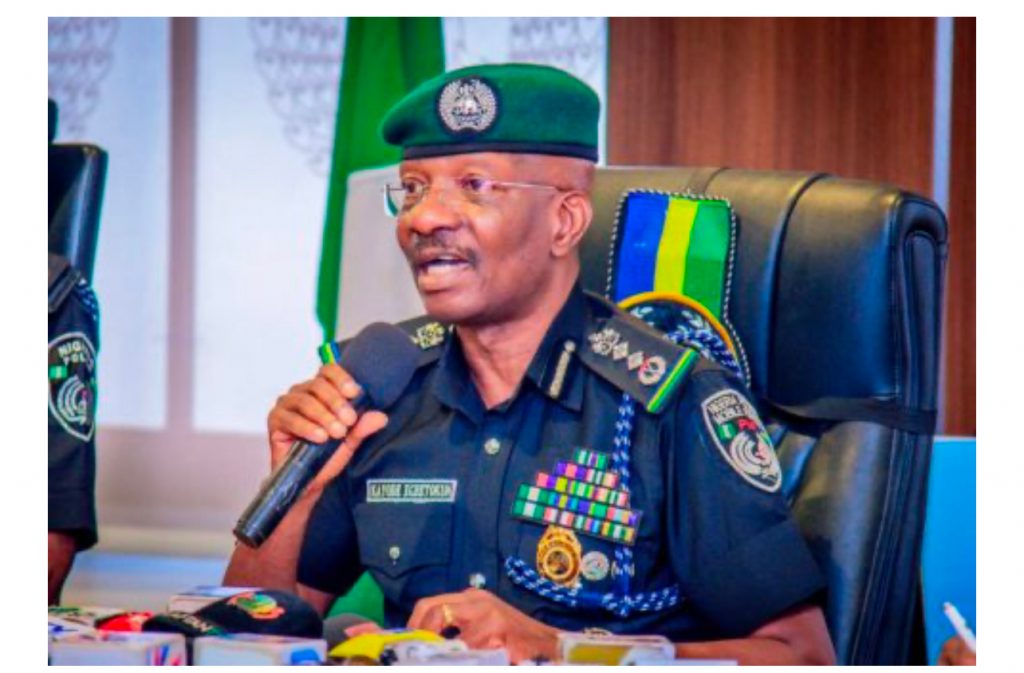 Police arrest armed robbers involved the killing of Somtochukwu Maduagwu
Police arrest armed robbers involved the killing of Somtochukwu Maduagwu
There are indications that 12 of the armed robbers involved the operation leading to the death of Arise News anchor, Somtochukwu Maduagwu have been arrested.
Somtochukwu Maduagwu, an anchor at Arise TV News panicked and jumped to her death after heavily armed robbers besieged her Katampe Extension home in Abuja.
It was reported that the robbers numbering about 15, well-armed, upon arriving the 18 blocks apartment estate, split themselves into groups and began robbing from flat to flat when 29 year old Sommie panicked and jumped down from her balcony to escape them before they arrived at her flat.
Our correspondence reports that attempts were made on the spot to revive her by a neighbor who gave her CPR before she was thereafter, rushed to the Maitama General Hospital where after trying to breathe life into her to no avail, the Doctors on duty declared her dead- on-arrival.
However, in a recent development, a Police EIB report released moments ago, indicates that 12 of the 15-armed robbery gang have been arrested by the Police in the Federal Capital Territory (FCT) Police.
Below is the EIB report released on Thursday…
Armed Robbers Involved In The Robbery That Led To The Death of Arise News Staff, Somtochukwu Maduagwu Arrested
According to the Police, the suspects are:
1. Shamsudeen Hassan ‘m’ from Malumfashi LGA Katsina state
2. Hassan Isah ‘m’, 22 years from Zaria kaduna State
3. Abubakar Alkamu a.k.a. abba ‘m’, 27 years from Musawa LGA katsina state
4. Sani Sirajo a.k.a. dan borume ‘m’ 20 years from Malumfashi LGA katsina state
5. Mashkur Jamilu a.k.a. abba ‘m’ 28 years from Igabi LGA kaduna state
6. Suleiman Badamasi a.k.a. dan-sule ‘m’ 21 years from Malumfashi LGA katsina state
7. Abdul Salam saleh a.k.a. na-durudu ‘m’ from katsina lga katsina State
8. Zaharadeen Muhammad a.k.a. gwaska ‘m’ 23 years from chikun lga kaduna state
9. Musa adamu a.k.a. musa hassan ‘m’ 30 years from malumfashi lga katsina state
10. Sumayya Mohammed a.k.a. baby ‘m’ 27 years from Sammaka LGA, Kaduna state
11. Isah Abdulrahman a.k.a. abbati ‘m’, 25 years from Zaria LGA, Kaduna state
12. Musa Umar a.k.a. small ‘m’ 31 years from Maiduguri LGA Borno state.
Shortly after the robbery incident, four (4) of the suspects shamsudeen hassan, alkamu, sirajo and one other person were apprehended through the tracking of phones stollen from the apartment during the robbery.
During interrogation, Shamsudeen Hassan confessed that he shot the security guard when he attempted to prevent them from gaining access to the apartment. Sani Sirajo confessed to have tried to hold Somtochukwu Christella Maduagwu from falling off the three-storey building but was overwhelmed by her weight. Shamsudeen further confessed that he drove the white honda CR-V jeep out of the apartment after the operation. The four suspects admitted that they each received ₦200,000 from the proceeds of the crime.
Recovered exhibits include:
One (1) fabricated ak-47 rifle
Thirty-six (36) rounds of 9mm live ammunition
One (1) locally made pistol
One (1) pump-action gun
Two (2) live cartridges
Four (4) mobile phones of the victims
Two (2) sharp knives
One (1) cutlass
Nine (9) torchlights used during the operation
In continuation of investigations, yesterday, 08/10/2025, acting on a tip-off and actionable digital intelligence also provided by us, the remaining members of the gang, Musa umar a.k.a. small, Hassan Isah and other accomplices involved in the Gishiri robbery were intercepted while enroute to an already planned armed robbery operation scheduled to hold at maitama in the early hours of this morning.
All suspects have confessed to the crimes, investigation is ongoing.
-

 news5 years ago
news5 years agoUPDATE: #ENDSARS: CCTV footage of Lekki shootings intact – Says Sanwo – Olu
-

 lifestyle5 years ago
lifestyle5 years agoFormer Miss World: Mixed reactions trail Agbani Darego’s looks
-

 health5 years ago
health5 years agoChairman Agege LG, Ganiyu Egunjobi Receives Covid-19 Vaccines
-

 lifestyle4 years ago
lifestyle4 years agoObateru: Celebrating a Quintessential PR Man at 60
-

 health5 years ago
health5 years agoUPDATE : Nigeria Records 790 new cases of COVID-19
-

 health5 years ago
health5 years agoBREAKING: Nigeria confirms 663 new cases of COVID-19
-

 entertainment9 months ago
entertainment9 months agoAshny Set for Valentine Special and new Album ‘ Femme Fatale’
-

 news5 months ago
news5 months agoBREAKING: Tinubu swears in new NNPCL Board


